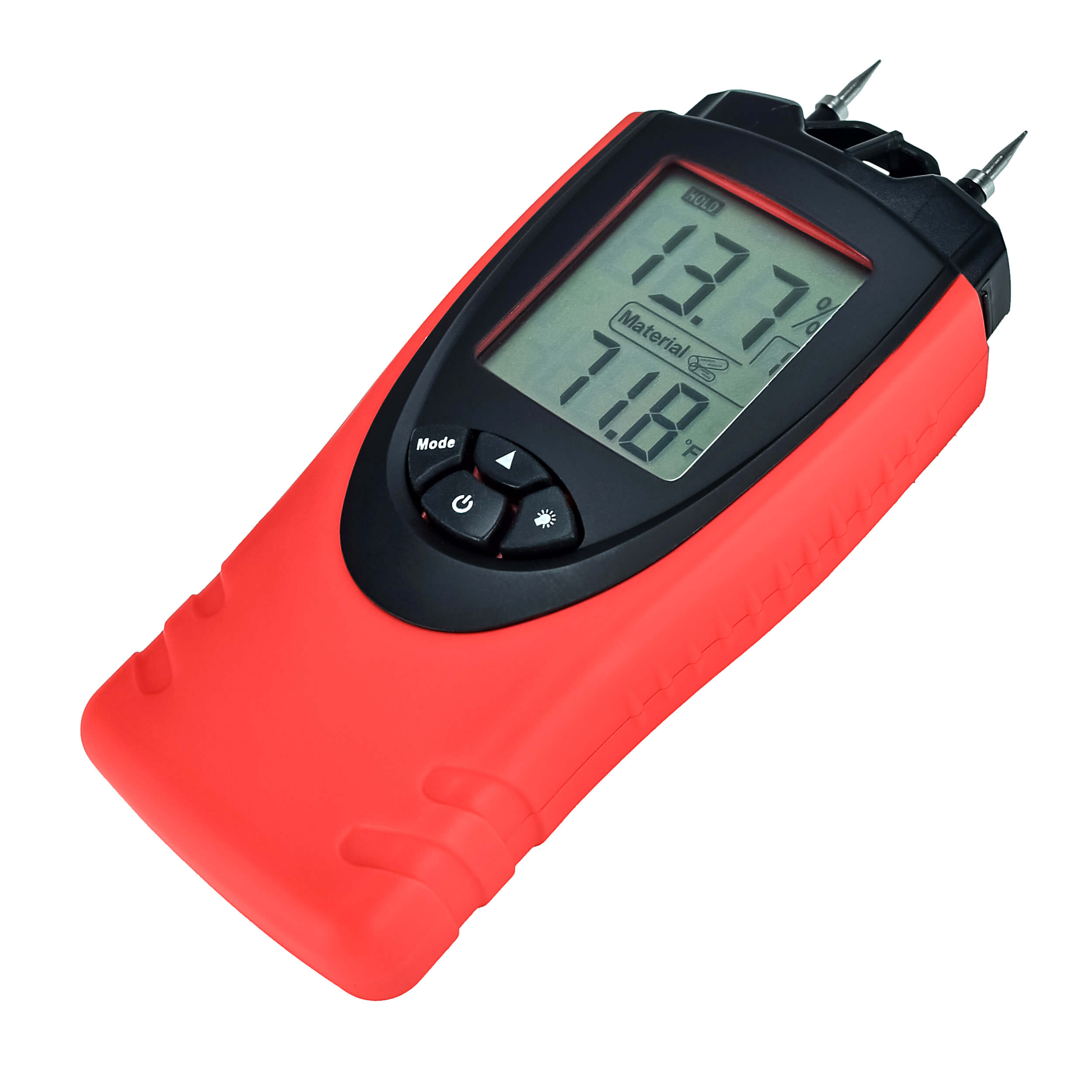Moisture Meter Buying Overview: What to Look for in High-Quality Instruments
Moisture Meter Buying Overview: What to Look for in High-Quality Instruments
Blog Article
The Ultimate Overview to Wetness Meters: A Comprehensive Summary and How They Can Save You Money
Dampness meters serve as crucial devices in discovering and checking moisture web content in materials, assisting in avoiding costly damages and guaranteeing the high quality of products. Understanding the nuances of different kinds of dampness meters, their applications, and the potential cost-saving benefits they provide can be a game-changer for services and professionals alike.
Kinds Of Dampness Meters
Different kinds of wetness meters are available for various applications in numerous industries. One common type is the pin-type dampness meter, which measures the electric resistance between two pins placed right into a product. This kind appropriates for timber, drywall, and various other building products. Pinless dampness meters, on the other hand, usage electro-magnetic sensor plates to scan a bigger location without creating damage to the material's surface area. Moisture Meter. These meters are suitable for swiftly evaluating moisture levels in large areas such as floors and walls.

Infrared moisture meters gauge the thermal residential or commercial properties of a material to determine its wetness material non-invasively, making them beneficial for applications where pin or pinless meters might not be ideal. Comprehending the different types of wetness meters offered can aid sectors pick the most appropriate device for their particular dampness measurement needs.

Advantages of Utilizing Moisture Meters
Wetness meters supply indispensable advantages in precisely keeping an eye on and analyzing wetness degrees in varied products and atmospheres (Moisture Meter). One of the key advantages of using dampness meters is the avoidance of prospective damage brought on by excess dampness. By spotting and dealing with high dampness degrees early, dampness meters aid to stop mold development, rot, and structural damage in buildings, saving both time and money on fixings. In addition, moisture meters aid in making sure the quality of materials throughout building and construction or production processes. By accurately gauging moisture web content, these tools aid preserve the stability of timber, drywall, concrete, and various other materials, minimizing the threat of flaws or failings.
Moreover, utilizing wetness meters can lead to boosted energy efficiency. By identifying locations with high wetness degrees, such as leaks or bad insulation, adjustments can be made to enhance energy conservation and decrease energy expenses. In farming setups, dampness meters play an important role in enhancing crop yields by enabling farmers to keep an eye on dirt dampness degrees and make informed watering decisions. In general, the benefits of utilizing wetness meters cover across various markets, supplying cost-effective solutions and advertising much better quality control methods.
Just How to Pick the Right Dampness Meter
When choosing a wetness meter, it's essential to make certain that the meter is ideal for the specific product you will be screening. Various products have varying electric buildings that can influence moisture analyses, so selecting a meter created for your material is important for accurate outcomes. By very carefully assessing these aspects, you can select a moisture meter that fulfills your demands and provides exact dampness dimensions for your projects.
Proper Methods for Wetness Meter Usage

Cost Financial Savings Via Wetness Meter Applications
How can the strategic usage of dampness meters cause considerable price financial savings throughout numerous why not try these out markets? Wetness meters play an essential function in expense financial savings by avoiding prospective damages and making certain quality assurance in different markets. In the farming sector, wetness meters help in determining the ideal time for gathering plants, protecting against excess or over-drying wetness that can influence the end product's high quality. This accurate surveillance aids farmers prevent unneeded losses and maximize their return.
Similarly, in building, moisture meters help protect against pricey damages by detecting wetness levels in structure products, such as timber or concrete, which can cause structural issues otherwise addressed promptly. By determining trouble locations beforehand, service providers can take restorative procedures to avoid substantial repairs or substitutes, inevitably conserving money and time.
Moreover, in the food processing industry, dampness meters are essential for keeping an eye on product quality and making sure conformity with security regulations. By properly measuring moisture content in food, manufacturers can prevent wasting, maintain quality, and lower waste, leading to significant expense savings. In general, the critical application of dampness meters is an important investment that can lead to substantial price reductions and enhanced efficiency throughout different industries.
Conclusion
Finally, dampness meters are useful devices for measuring and identifying wetness degrees in various products. By making use of the right moisture meter and complying with appropriate methods, customers can properly avoid pricey damages triggered by excess dampness. Investing in a quality wetness meter can cause significant cost financial savings in the lengthy run by determining potential concerns beforehand and enabling timely remediation. Ultimately, dampness meters are important instruments for preserving the stability and durability of materials and structures.
Moisture meters serve as crucial devices in discovering and checking moisture web content in materials, her explanation assisting in stopping pricey problems and making certain the quality of products. Infrared dampness meters gauge the thermal residential properties of a product to determine its wetness web content non-invasively, making them beneficial for applications where pin or pinless meters you can look here may not be suitable.Dampness meters supply indispensable advantages in accurately analyzing and monitoring dampness levels in diverse products and settings. In agricultural setups, moisture meters play an essential duty in enhancing crop yields by making it possible for farmers to keep an eye on soil wetness levels and make notified irrigation decisions.In conclusion, moisture meters are important devices for gauging and identifying wetness levels in numerous products.
Report this page